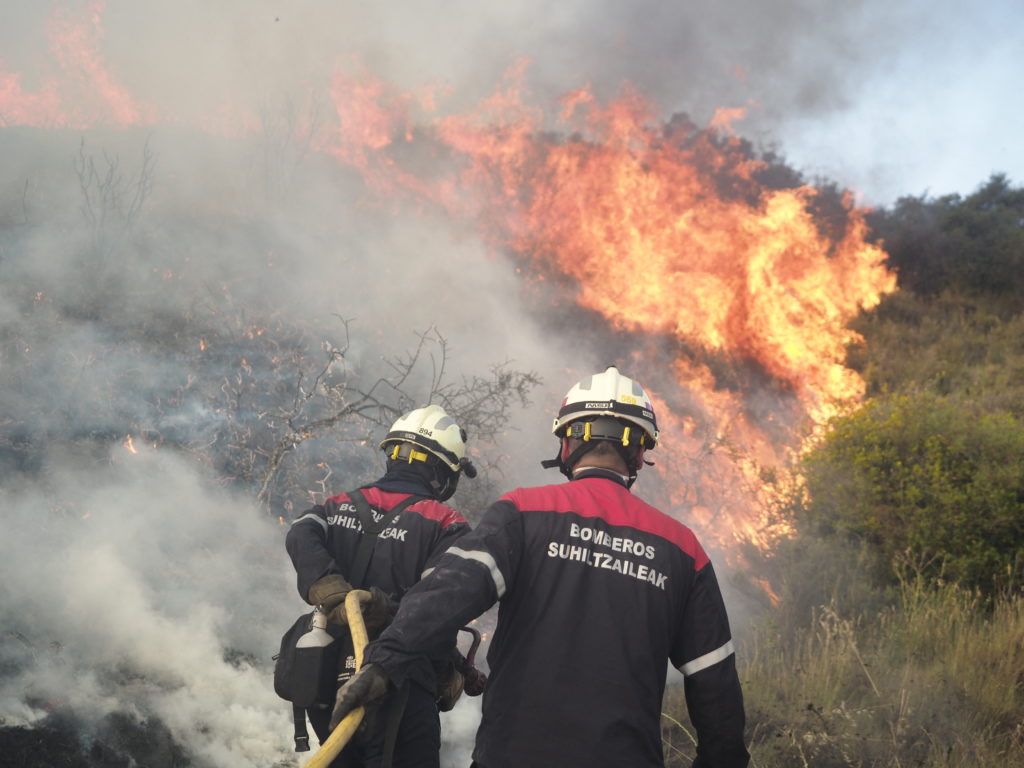BRUSSELS BEHIND THE SCENES
Weekly analysis and untold stories
With SAM MORGAN
'Told you so' is pointless
Record temperatures are scorching Europe and wildfires are ripping across the continent at a worrying rate, confirming – if it were needed – that climate breakdown is here and is rapidly asserting itself over our day-to-day lives.
It is only human nature to want to say ‘I told you so’ when you are proved right about something, as it is one of the most cathartic joys that people can experience, especially the pettiest individuals among us.
This is especially true when it is about an issue that is particularly important, like where certain beers are brewed, the correct route to get to the shops and ensuring that Planet Earth remains habitable for human beings.
As the most visible effects of climate breakdown become more pronounced across the world this summer though, the urge to say I told you so must be ignored if we are to actually do something about it.
BRUSSELS BEHIND THE SCENES is a weekly newsletter which brings the untold stories about the characters driving the policies affecting our lives. Analysis not found anywhere else, Sam Morgan helps you make sense of what is happening in Brussels. If you want to receive Brussels behind the scenes straight to your inbox every week, subscribe to the newsletter here.
Society has undoubtedly become more polarised. The Covid pandemic was a golden opportunity to work towards a goal for the greater good but ultimately ended up pitting people against each other.
Science and a precautionary approach lined up on one side, advocates of ‘personal freedoms’ lined up on the other. When it comes to climate change, the dynamic is not all that different.
In order to beat the collective enemy (coronavirus or global warming), behaviours have to change and a big price tag will have to be paid. Success will mean a happier society and fewer actual costs in the long-run.
Winning either fight requires public by-in. People have to make personal concessions and support political movements that will make changes that individuals are simply incapable of achieving by themselves.
Ending all reliance on fossil fuels, having an honest public conversation about what to do about transport and figuring out what to do with problematic energy sources like nuclear and bioenergy need to happen. This summer illustrates starkly the timeframe that is needed.
But it is arguable that none of those momentous shifts in business-as-usual can be achieved by a divided society, i.e. the one we have right now.
The US is a prime example. Currently staring down another decade of inaction on climate policy due to a fractured political system, the country’s entire future can be held hostage by one senator from West Virginia.
In Europe, green policies have been held back for years both at national and EU level because one group of countries wants one thing and another group wants another.
The one silver lining of this summer and the horrendous effect fires and temperatures will have on vulnerable and, in some cases, simply unlucky people, is that the spectre of climate denial is slowly being banished.
That is why the people that were right all these years about human economic activity’s impact on the planet cannot engage with I-told-you-so-isms, even though the urge may be overwhelming.
Poland, a prime culprit in watering down EU policies over the years, is now gradually shifting away from fossil fuel advocacy towards green energy, as a result of its stance on Russia and the sheer price of polluting fuels these days.
That change of direction, however overdue, needs to be encouraged and used as an example to throw in the face of other laggards.
At a non-governmental level, climate activists – instead of showing up at cycling or Formula One races to highlight those sports’ association with fossil fuels – should align with motorists who are blocking roads to protest high fuel prices.
“Your fight is our fight,” should be the strategy, at least for now.
Switching off gas valves, decommissioning coal power stations and getting people to cycle and walk will ultimately be a quicker process than people expect. It is the process of getting everyone reading from the same page – or at least the same book – that is the difficult part.
That is the logic behind this little call for humbleness by the author of this Behind the Scenes, written from a desk on the Dalmatian coast, where people are sweltering in their own skins and worried that fires will tear down everything they hold dear.
Telling those people that they were warned about this decades ago and should have done something about it will help no one. Trying to help them do something about it in the here and now hopefully will.
BRUSSELS BEHIND THE SCENES is a weekly newsletter which brings the untold stories about the characters driving the policies affecting our lives. Analysis not found anywhere else, Sam Morgan helps you make sense of what is happening in Brussels. If you want to receive Brussels behind the scenes straight to your inbox every week, subscribe to the newsletter here.

